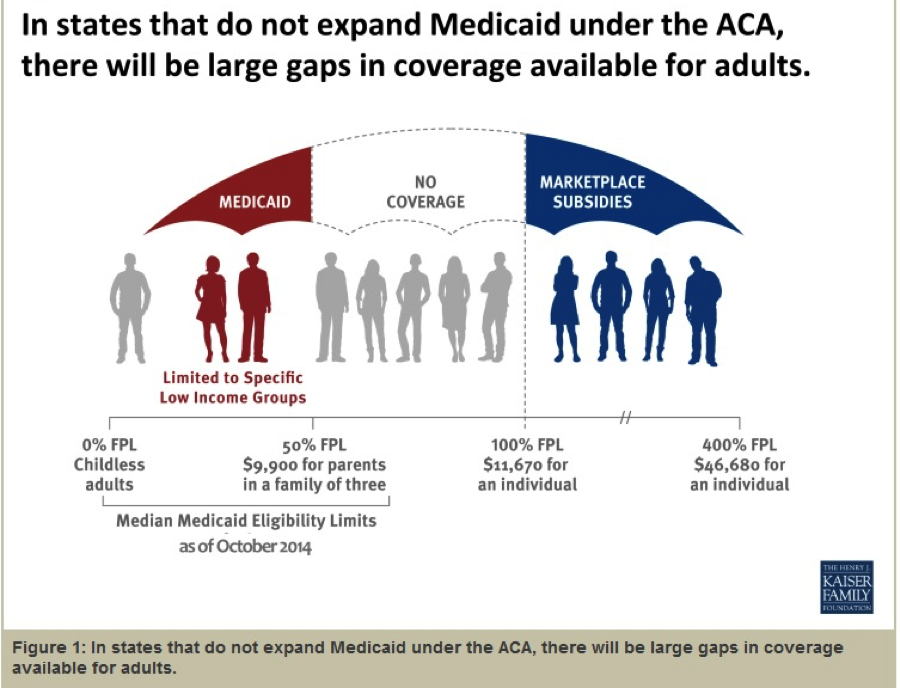Pennsylvania Governor Tom Wolf has been making history since his election in November 2014. The first challenger to unseat an incumbent Governor in Pennsylvania, Wolf has committed to reversing former Governor Corbett’s decision to not expand Medicaid and bolster President Obama’s health care reforms. However, despite an outlying victory in Pennsylvania, the 2014 midterm elections were largely a success for the GOP; by obtaining control of the Senate, the Republican Party garnered big wins on a federal level, complemented by wins on the state level.
This follows repeated efforts to repeal the President’s health care bill. Republican opposition to the Patient Protection and Affordable Care Act, also known as the ACA, began in 2009. As Congressional committees in both houses debated the ACA, a rhetorical onslaught to defeat the bill was underway. President Barack Obama’s vision for the ACA was one of expanded access and affordable health care. Conservatives decried his policy as a “socialist take-over,” the creation of death-panels, and the use of public funds for abortion coverage. Proponents made concessions and weakened the original content of the law in order to garner enough support for its passage. President Obama signed the ACA into law in May 2010, bringing hope for increased access to healthcare for the nation’s poorest.
Under the ACA, states have the option to expand their existing Medicaid programs to cover those with incomes up to 133 percent of the federal poverty level. According to a Kaiser Family Foundation report from 2013, 51 percent of uninsured adults have incomes below the new Medicaid limit as set forth by the expansion policy. The law therefore provides coverage to millions of low-income Americans.

On paper, this looks like a policy victory for the nation’s poorest. However, as the law currently stands, states may opt out of Medicaid expansion: a 2012 Supreme Court ruling overturned the ACA provision that required states to implement the expansion. To date, 27 states have implemented the ACA’s Medicaid expansion provisions or are in the process of doing so, while 23 states have refused.
These refusals to expand coverage are creating a massive ‘coverage gap’; an estimated 4 million adults, otherwise eligible, will be unable to obtain health insurance due to falling in this gap. These citizens are found in higher concentrations in Southern states, and overwhelmingly in states that have opted out of Medicaid expansion. Internationally, the United States ranks last among developed countries in terms of amount spent on healthcare versus the number of people receiving care. In sum, the American healthcare system needs change that President Obama and the ACA do not fully deliver.
State Sovereignty, State Neglect
While expanding access to healthcare to the poor may appear to some to be a moral imperative, the political responses to expansion of Medicaid are anything but. Former Texas Governor Rick Perry penned an open letter to then-Health and Human Services Secretary Kathleen Sebelius stating that he was grateful the federal government no longer had a “gun to the head” of the states, so that he would be free to refuse to expand Medicaid, thanking “God and our nation’s founders that we have the right to do so.”
Governor Perry’s sentiments may be outlandish, but they are by no means unique: almost half of the states will not be expanding Medicaid. With the Democrats’ loss of the Senate in the 2014 midterm elections, the political will to strengthen the ACA or even to increase the number of states implementing Medicaid expansion seems virtually non-existent.
Republican governors holding political power over access to federally funded ACA Medicaid expansion have staked out their position—a position that has predictably measurable effects on health outcomes among their constituents. A report published by the Kaiser Family Foundation in November 2014 found that of those uninsured by the coverage gap, 18 percent were in poor health. Additionally, 66 percent of respondents reported working full-time or part-time, tying their health directly to their ability to provide for themselves and their families.
Getting sick is inevitable, and for many of our nation’s poor, seeing a doctor and receiving care is likely not an option. What recourse is left to those whose lives literally may depend on different action from the occupants of their statehouses?
Power to the Poor

How might beneficiaries respond to their state’s refusal to expand Medicaid coverage? Given the life-or-death stakes, one might expect protest or disruptive behavior from the four million people effectively denied coverage via state refusal to comply with the ACA. But this has largely not been the case. With the exception of Pennsylvania, Republican governors running for re-election did not face grassroots mobilization to protest their decisions to reject Medicaid expansion.
The fight for Medicaid expansion has very real consequences, ones that are all too often overlooked among the rhetoric pervading this debate. Every day, the poor in this country are systemically denied access to healthcare; it is important to highlight their stories and their experiences. Conservatives hide behind arguments of reducing government spending, and use state sovereignty as their excuse for denying healthcare to millions. It is the responsibility of the Democrats to hold them accountable.
Considering these circumstances, and the increasing number of low-income citizens unable to obtain health insurance or access to care, it is imperative that this issue become a focal point in future elections and policymaking. There is a strong case for the involvement of both grassroots participants and political elites; each group depends on the other. The discourse surrounding Medicaid expansion has largely been overtaken by conservative opposition to the ACA. With the 2016 elections quickly approaching, it is important that Democrats find a way to engage voters on this issue.
Change is needed, both in the expansion of Medicaid and the Democrats’ strategy to get there. The ACA may have brought much needed change to the American healthcare system, however this was a necessary but insufficient condition for improving access to care. More needs to be done, and the most economically vulnerable among us can no longer be ignored.

